‘Countdown to Zero’ — or Apocalypse, Whichever Comes First
"Countdown to Zero" is an intelligent, graphically sophisticated documentary film about what is almost certainly the most important issue confronting the world today -- nuclear proliferation.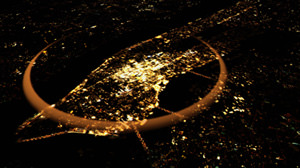
“Countdown to Zero” is an intelligent, graphically sophisticated documentary film about what is almost certainly the most important issue confronting the world today — nuclear proliferation. Its director, Lucy Walker, interviewed 84 individuals, ranging from Valerie Plame Wilson to Tony Blair, over the course of a year’s intermittent shooting, of whom 31 made it into her final cut. In addition, she grabbed an indeterminate number of on-the-street interviews with ordinary people, designed to determine what, if anything, they know about this problem.
Therein lies the film’s most fundamental irony. Most documentaries are created implicitly — often enough explicitly — as calls to action. We are supposed to do something about the issues they explore; mount protests, write letters to the editor or our congressman, make some kind of fuss. But the good folks Walker catches unaware on the streets of New York or Moscow or wherever basically shrug, simper and grin at their own ignorance. They take wild stabs at the number of countries that are members of the nuclear club, they have no idea about how easy it is to steal, buy or build a bomb of one’s own, how close we have often come to accidentally setting off a nuclear incident.
Or, perhaps, most chilling, how impotent the deterrent threat of retaliation actually is in today’s world. To take a convenient instance: Al-Qaida, which has a high, obvious interest in obtaining nuclear capability, is not a nation; the threat of retaliation is of no consequence in its calculations. What in the world could we threaten to bomb in return if it carried out its threat to exterminate 4 million Americans with even a few primitive atomic devices? There are, after all, only 50,000 al-Qaida members and they are not conveniently clustered in some Pakistani cave.
At the dawn of the Atomic Age, Robert Oppenheimer was asked what might be the most useful tool in preventing a nuclear attack on New York City. He replied: “A Screwdriver”—actually, of course, many screwdrivers, enough to open every single container entering the port by ship or plane. It does not appear that in the intervening years any substantial advance on Oppenheimer’s proposal has come forth.
|
Photo courtesy Magnolia Pictures |
That’s in large measure because proliferation has always been a matter discussed mainly at the highest, most secretive, levels of government. Sure, every once in a while A.Q. Kahn is observed scuttling about, peddling his deadly wares, and there is a little flurry of reporting and think pieces about his activities. But as far as we can tell, nothing is ever done about him. Or about the guys who sneak into Russian facilities and make off with fissionable material, using little more than wire cutters and crowbars to do their sometimes very profitable deeds.
It is therefore useful — not to mention scary — for this film to penetrate the dimness and get knowing people to speak frankly about what is so obviously a clear, present and never-ending danger. But still, one has a certain sympathy for the ordinary people asked suddenly to think about the unthinkable. They remember their high school civics class. They know they really ought to care about this subject, though perhaps not to extent of taking out a subscription to Foreign Affairs. So, sheepishly, they perhaps head off to the movies — thinking, possibly, that they’ve been lucky for 65 years and that maybe their luck will hold for a similar span.
Last week, when “Countdown” appeared on a few screens, “Salt” appeared on a couple of thousand of them. In its way, it takes up a closely related issue. Seems that toward the end of the Cold War, the Russians trained a small army of sleeper agents, who were at some point supposed to awaken, commandeer the U.S. nuclear arsenal and start a war from which the Russkies hoped to be the last men standing. Or wobbling. Or something. We are also expected to wonder if the title character, played by Angelina Jolie, is not the CIA agent she’s supposed to be, but one of the sleepers. We know she’s not — she’s the movie’s alarmingly athletic star for godsake.
The whole thing is silly, of course, though director Phillip Noyce has mounted an enjoyably delirious nonstop action piece — one of those movies that comes as close to pure visual abstraction as the commercial cinema permits. But that’s not the point. What I’m saying is that movies like “Salt” give us exactly what we can handle when we’re asked to contemplate the “nuclear Sword of Damocles” as John F. Kennedy called it, hanging over all our heads — a finite time frame, a happy ending and a very pretty woman in perpetual jeopardy. We may emerge from it looking a little guilty, because, against our better judgment, we had a pretty good time at it. But that’s nothing compared to the guilt we feel coming out of “Countdown to Zero.” Danger requires a clear and present deadline if it is to arouse and concentrate our attention. But all this film’s earnest, learned witnesses offer us is Apocalypse Sometime, which is a thought too vague to stir us into urgent thought or action. It represents the documentarian’s endemic, insoluble problem: how to turn talking heads into running feet. “Countdown” is a well-made and instructive film, but it tends to evaporate from memory — sort of like yesterday’s Op-Ed piece.
Your support matters…Independent journalism is under threat and overshadowed by heavily funded mainstream media.
You can help level the playing field. Become a member.
Your tax-deductible contribution keeps us digging beneath the headlines to give you thought-provoking, investigative reporting and analysis that unearths what's really happening- without compromise.
Give today to support our courageous, independent journalists.
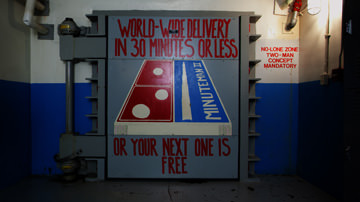

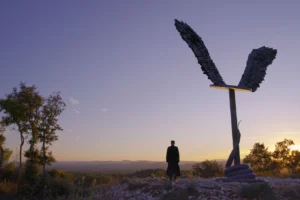
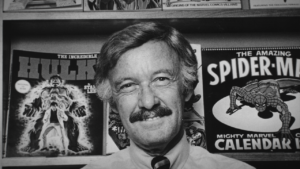


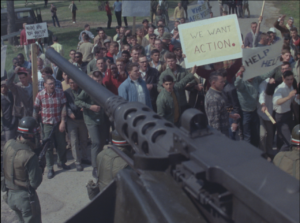
You need to be a supporter to comment.
There are currently no responses to this article.
Be the first to respond.